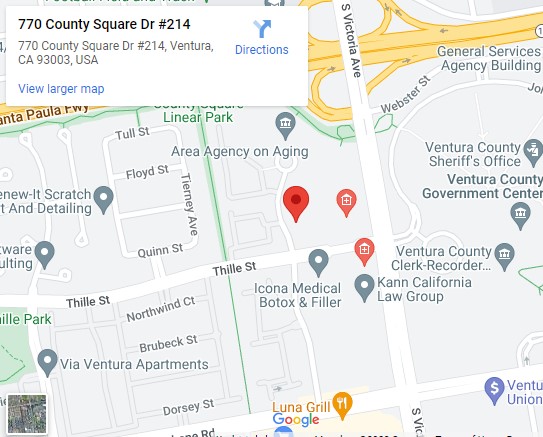How Much Do You Know About Deportation?
Are you or someone you know facing deportation? The Ventura CA deportation process is complicated, thus legal representation is essential. When facing removal, an experienced attorney is not only recommended but necessary to navigate immigration rules and hearings.
Our professional lawyers at El Camino Inmigracion can answer any question you have concerning Ventura, CA deportation laws. We delight in helping you find clarity and peace. Our years of experience working with non-citizens allow us to interpret the law and explain the processes. Contact us today to discuss your problem.
Quick Summary:
This post delves into the deportation process in Ventura, CA, providing a comprehensive overview of the legal steps involved and the relevant laws. From the initiation of removal proceedings to potential defenses and appeals, each aspect is explored. Understanding the nuances of the deportation process is crucial for individuals facing this challenge, emphasizing the necessity of seeking guidance from a knowledgeable attorney to navigate the complexities and pursue the best possible outcome.
What is Removal or Deportation?
Deportation is the legal process of forcing a non-citizen to leave the country owing to immigration violations or expiration of their stay. Immigration officials undertake formal legal proceedings to determine the individual’s status to stay.
Is Deportation a Criminal Proceeding?
Deportation is an immigration law-governed administrative proceeding, not a crime. Immigration authorities start and run it, not criminal courts.
Criminal and immigration proceedings can overlap in some cases. Immigration infractions and other serious crimes can lead to removal. As an example:
- Criminal Convictions: If a non-citizen is convicted of certain offenses, such as serious felonies or moral turpitude, immigration authorities may commence removal proceedings.
- Illegal Entry or Re-entry: Deportation proceedings may result from illegal entry or re-entry, which are considered immigration infractions. These actions may be crimes, depending on the jurisdiction.
- Detention for Criminal Charges: People in deportation proceedings may be jailed if they also face criminal charges. Criminal charges may be independent from immigration breaches that to removal.
Causes of Deportation or Removal
There are various reasons why an individual may face deportation or removal from a country. Common causes include:
- Violation of Immigration Laws: Immigration law violations, such as overstaying a visa, entering the country without legal papers, or participating in illicit employment, can result in deportation.
- Criminal Convictions: Deportation proceedings may occur from certain criminal convictions, such as serious felonies or crimes of moral turpitude. Offense severity affects removal chance.
- Illegal Re-entry: Individuals who have been previously deported and re-enter the country illegally may face removal proceedings.
- Visa Violations: Violating visa rules and limitations, such as working without authority or remaining beyond the allotted period, can result in deportation.
- Security Concerns: Individuals posing a threat to national security or public safety may be deported. This includes terrorist or other security-threatening activity.
- Fraudulent Activities: Providing false information on immigration applications or using fraudulent papers might result in removal procedures.
- Failed Asylum Applications: Individuals with denied asylum claims may face deportation. Many times, immigration authorities discover inadequate evidence of a legitimate fear of persecution.
- Public Charge Grounds: If a someone becomes a public charge or is likely to grow dependent on government aid, they may be deported.
- Violations of Student Visa Conditions: Failing to maintain the conditions of a student visa, such as attending the specified educational institution or engaging in unauthorized employment, can lead to removal proceedings.
- Unlawful Presence: Accumulating unlawful presence in a country, especially after a visa expires, can be a basis for deportation.
How Does Deportation Work?
Deportation, or removal, takes multiple steps and a legal framework. A summary of deportation follows:
- Initiation of Proceedings: The removal process usually starts with a Notice to Appear (NTA) from immigration authorities. This document explains reasons for removal and charges against the individual.
- Hearing before an Immigration Judge: Individuals facing removal have the right to a hearing with an immigration court. The government and person can present evidence, witnesses, and legal arguments at the hearing.
- Legal Defenses: Individuals facing deportation may present legal defenses to contest the basis for removal. Showing eligibility for asylum or removal cancellation may be required.
- Appeals and Motions: If the immigration court makes a negative ruling, you can appeal or file motions to reopen the case. This provides more chances to offer evidence or correct legal flaws.
- Enforcement and Detention: In some cases, individuals may be detained during the removal process, particularly if there are concerns about flight risk, public safety, or immigration violations.
- Voluntary Departure: In rare cases, persons may be given the option of voluntary departure, allowing them to leave the country without formal removal orders. This may affect future immigration applications.
How Can I Stop Deportation?
Defending against deportation is complicated and depends on the case. When facing deportation, consider these steps:
- Consult with an Immigration Attorney: Seek the help of a skilled immigration lawyer immediately. They can evaluate your case, explain your rights, and provide defenses and remedy.
- Understand Your Immigration Status: Understand your existing status and potential relief options. Your situation may warrant asylum, cancellation of removal, or status adjustment.
- Gather Supporting Documents: Support your argument with documentation and evidence. This may include family relationships, community activity, career history, and other good contributions to society.
- Explore Relief Options: If you fear persecution in your home country, discuss relief options with your attorney, such as asylum or cancellation of removal if you fulfill specified criteria.
- Appear at Hearings: Attend all scheduled immigration court hearings. Failing to appear can negatively impact your case.
- Present a Strong Case: Collaborate with your attorney to submit evidence and arguments supporting your stay in this country.
- Stay of Removal: Request a stay of removal, which temporarily halts the deportation process. This may provide more time to pursue legal remedies.
Why Do I Need a Deportation Attorney?
Given the high stakes involved in deportation cases, having a knowledgeable and dedicated deportation attorney is essential to safeguarding your rights and increasing the likelihood of a positive outcome.
An experienced deportation attorney can assess the details of your case, identify potential defenses, and formulate a strategic plan tailored to your specific circumstances. They understand the nuances of immigration law and can create a compelling case on your behalf.
Moreover, there are various forms of relief from deportation, such as asylum, cancellation of removal, or adjustment of status. A deportation attorney can evaluate your eligibility for these forms of relief, guide you through the application process, and advocate for your case.
Understand The Deportation Process Ventura CA
The success of stopping deportation depends on the specific circumstances of each case, and there is no one-size-fits-all solution. Consulting with an experienced immigration lawyer is crucial to understanding your options and building a strong defense strategy.
Work with our attorneys at El Camino Inmigracion to answer any questions you may have about deportation laws or the general deportation process in Ventura, CA. We are also ready to help you with the asylum process, getting a green card, and more. Call now.




